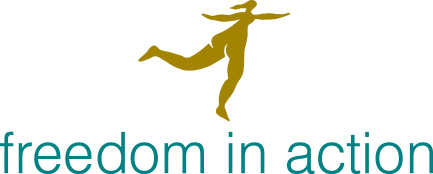A Series of Face-to-Face Mentoring/CPD Workshops
(subject to Covid contingencies)
for Alexander Technique teachers and trainees
with Michael Stenning and Léonie John
A sequence of two workshops per year over three years –
Come to one workshop or ideally build across all 6.
Melbourne SOFMAS 10.00am – 4.00pm 20-21 March and 18 – 19 September 2021
Sydney Cammeray Golf Club 10.00am – 4.00pm 27-28 Feb and 9 – 10 October 2021
$320 per 2021 workshop, early bird $280 by 20 Feb/18 Aug (Melbourne), 25 Jan/9 Aug (Sydney)
Booking confirmed on receipt of fee: BSB 112 908 Ac No 154464967
Please use your name and w/s date as reference
Cellist Pablo Casals, asked at age 90 why he kept practising, replied, “I feel I am getting somewhere”. Let’s keep refreshing our own basics! Let’s drill down into our assumptions and let’s revisit our practical understanding and skills.
These workshops will address these questions with practical procedures, discussion and hands-on work (YAY!!)
Michael’s work is clear, precise and consistent. There is a simplicity in his teaching which … is the hallmark of a master-teacher. (Merran Poplar, Teacher-trainer and STAT moderator)
“With refreshing clarity you are addressing the fundamentals of the Alexander Technique and how we can work on ourselves”(Lynne Conway – 3rd year trainee)
“Really enjoyed your clarity and you have really embodied your teaching.” (Penelope Carr – 35-year Teacher-trainer and AuSTAT moderator)
“Great clarity and a fresh curiosity in exploration – thanks!”
(Matthias Erdrich – Eyebody Teacher)
In these workshops successive themes may include:
- building the big Alexander picture out of the pieces – what are the pieces?
- Reciprocity and the ‘Primary Control’
- communication – hands, verbal and ?
- breath
- teaching intangibles – understanding ‘the sphere’
- giving a first lesson
- helping a pupil to unravelling their habits – how to figure out where to most usefully start
- teaching challenges and how to meet them. What ‘interesting’ or ‘challenging’ situations have you encountered in teaching?
- the difference between What?, How?, and Why?
- working on yourself: How and What?
- relationship between Inhibition and Direction
- giving your directions and building your “directing muscles”: How does this relate to putting your hands on? What’s the alternative?
- Working with a pupil on an activity – what is within our remit?
Up to a point these themes are circular – themes crops up within the others. We may have someone new to the work in class to demonstrate with when relevant.

Recent Comments